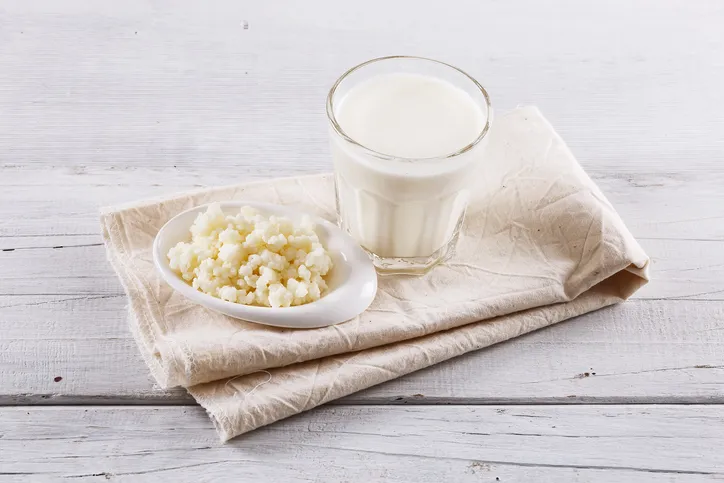Your gut microbiome is a vast community of trillions of bacteria and fungi that inhabit every nook and cranny of your gastrointestinal tract, and have a major influence on your metabolism, body weight, propensity to illness, immune system, appetite and mood. These microbes mostly live in your lower intestine (the colon) and outnumber all the other cells in your body put together.
Conceptually, we should view these microbes as a newly discovered organ, weighing slightly more than our brains and nearly as vital. There are some organs we can live without, including our spleen, gall bladder, tonsils and appendix, but we wouldn’t survive long without our gut microbes. Intriguingly, no two microbiomes are the same – we are all unique. And more than ever, we’re finding out just how important these microbes are.
Read more about the microbiome:
According to research, the richer and more diverse the community of gut microbes are, the lower your risk of disease and allergies. This has been shown in animal tests and also in human studies comparing the microbes of people with and without particular diseases. Examples from recent work at King’s College London include studies of diabetes, obesity, allergy and inflammatory diseases like colitis and arthritis.
Meanwhile, there is mounting evidence that babies born via caesarean section miss out on some of the microbes they would obtain through a vaginal birth, which may make them more vulnerable to allergies and asthma.
So how can yourestore healthy gut flora,increase the good bacteria in your body, and give your microbiome a healthy boost? Here are some tips to get your gut going:
1
Increase your fibre intake
Aim for more than 40g per day, which is about double the current averages. Fibre intake has been shown to reduce heart disease and some cancers, as well as reduce weight gain.
2
Eat as many types of fruit and veg as possible, and try to eat seasonally
The variety may be as important as the quantities, as the chemicals and types of fibre will vary, and each support different microbial species.
3
Pick high-fibre vegetables
Good examples are artichokes, leeks, onions and garlic, which all contain high levels of inulin (a prebiotic fibre). Some vegetables like lettuce have little fibre or nutrient value.
Read more about microbes:
4
Choose food and drinks with high levels of polyphenols
Polyphenols are antioxidants that act as fuel for microbes. Examples are nuts, seeds, berries, olive oil, brassicas, coffee and tea – especially green tea.
5
Avoid snacking
Also, try to increase intervals between meals to give your microbes a rest. Occasionally skip meals or have an extended fast – this seems to reduce weight gain.
6
Eat plenty of fermented foods containing live microbes
Good choices are unsweetened yoghurt; kefir, which is a sour milk drink with five times as many microbes as yoghurt; raw milk cheeses; sauerkraut; kimchi, a Korean dish made from garlic, cabbage and chilli; and soybean-based products such as soy sauce, tempeh and natto.

7
Drink a bit of alcohol
In small quantities, alcohol has been shown to increase your gut diversity, but large amounts are harmful to your microbes and your health.
8
Steer clear of artificial sweeteners like aspartame, sucralose and saccharine
These disrupt the metabolism of microbes and reduce gut diversity – in animal studies this has led to obesity and diabetes. Ditch the processed foods too, as these also upset microbes’ metabolism.
Read more about processed food:
- Ultra-processed food and the risk of death: will fish fingers and fizzy drinks kill you?
- Michael Mosley: Why do you think they call it junk food?
9
Spend more time in the countryside
People living in rural areas have better microbes than city-dwellers. While you’re at it, dust off your trowel: gardening and other outdoor activities are good for your microbiome.
10
Stroke animals
Studies have shown that people living with dogs have more microbial diversity.
11
Avoid antibiotics and non-essential medicines
Antibiotics destroy good and bad microbes, and it can take weeks to recover, so don’t take them unless you need them. Their use is also associated with obesity and allergies in animals. Even common medications like paracetamol and antacids can interfere with microbes.
12
Don’t be hygiene obsessed
Fastidious washing and overuse of antibacterial sprays may not be good for your gut.
Read more about hygiene:
- Personal hygiene: Is there such thing as ‘too clean’?
- Many cleaning products say they kill 99.9 per cent of germs. Should I worry about the remaining 0.1 per cent?
13
Spend time close to a lean person
Studies in mice have shown that leanness may be contagious. Microbes from a lean animal can reverse obesity in a fat one, but strangely, obesity microbes are harder to transmit than lean ones.
14
Avoid food and vitamin supplements
Only a tiny proportion of supplements have been shown to be beneficial. Instead, focus on eating a diverse range of real food to get all your nutrients.
15
Eat like the Hadza

The Hadza people of Tanzania have a gut microbiome diversity that is one of the richest on the planet and about 40 per cent higher than the average American and about 30 per cent higher than the average Brit.
The average Hadza person eats around 600 species of plants and animals in a year and has huge seasonal variation. They have virtually none of the common Western diseases such as obesity, allergies, heart disease and cancer. In contrast, most Westerners have fewer than 50 species in their diet and are facing an epidemic of illness and obesity.
You can find out more about my experience with the Hadza in issue 315 of BBC Focus.
For more food tips and information on diet, listen toThe Food Programme.